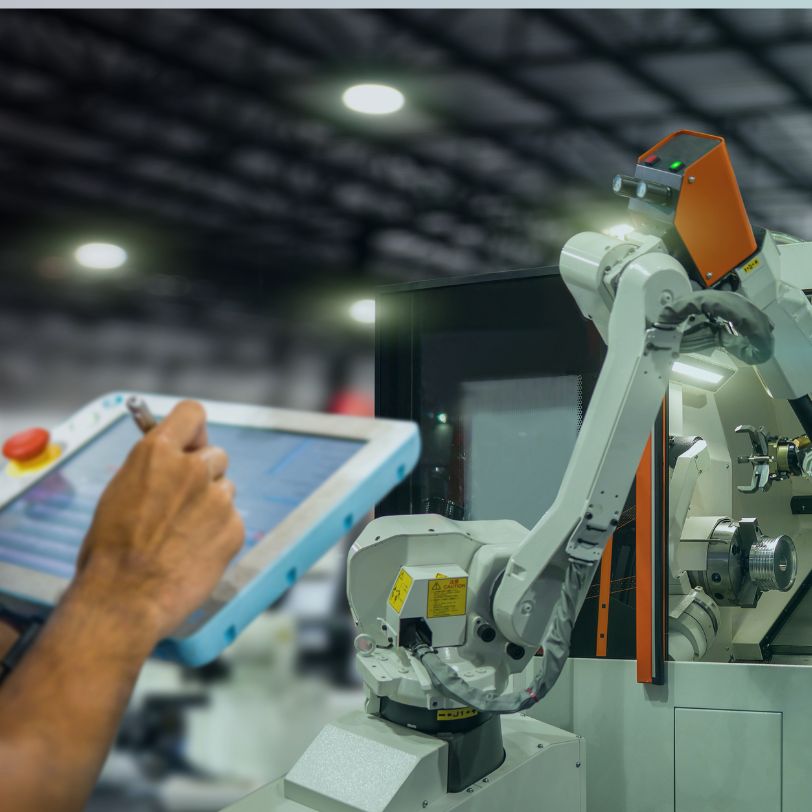- Training
- Maintenance & Service Management

Training for SAP Maintenance & Service Management
SAP Maintenance & Service Management Training Course List
In this training course, we provide a global overview of SAP as business software, covering the functionalities of SAP PM (Plant Maintenance), the various interfaces and the latest technologies. In addition, we focus on the maintenance module within SAP. You will become familiar with the basic concepts in SAP for maintenance and get an overview of best practice for the maintenance process.
We provide numerous tips and tricks for smoothly navigating in SAP via the classic screens. This way, you become familiar with the software, save time and minimise the number of clicks. For this, we use practical examples.

This training is about the asset master data managed in SAP. We cover the technical objects that represent plant and devices. You will learn how this structure is built in SAP and what basic data is maintained. We will also show you how technical data for pumps, for example, is accommodated in SAP using classification data. Various possibilities exist for keeping parts lists (spare parts). These are explained during the training using some examples.
Measuring points and counters can also be kept for technical objects. We explain how these are created and how to enter measurements and counter readings. You will also learn how to link documents, such as work instructions or drawings, to technical objects, for example via GOS or the more extensive Document Management System (DMS) in SAP. During the training you will also get an overview of the standard maintenance process in SAP, including standard task lists for recurring activities.

This module highlights the order as the central object for maintenance activities. The entire maintenance process will be discussed, but the focus will be on work preparation. Based on a work order, you will learn what possibilities there are in SAP for doing integral work preparation. Here, we also make the link to the spare parts warehouse and pay extensive attention to material procurement, external services and the associated availability checks.
In addition, the possibilities in SAP for drawing up long-term or detailed schedules are discussed, as well as closing maintenance orders after completion of the work. Important here is the focus on aftercare, updating master data in SAP and correctly recording execution history and follow-up tasks. You will also learn how mobile applications can simplify administration and smoothen the process.

This module provides an overview of the standard maintenance process, from reservation to spare parts delivery, including availability checks.
You get an introduction to basic spare parts data in SAP. This includes some tips and tricks to ensure that the right materials can be found quickly. You will also learn how to deal with materials bearing serial numbers. In addition, we pay attention to restocking the warehouse using MRP and identifying unused stock. repairable spare parts, the process of refurbishment in SAP is explained and the various options here.

This training provides an overview of the preventive maintenance process in SAP. This will take a closer look at the different types of maintenance plans possible within SAP and how the schedule can be adjusted. Think about:
- Maintenance plans in SAP: time-based & performance-based
- Standard task lists
- Planning of preventive maintenance tasks in SAP
We also give a brief overview of the innovative technologies within SAP Leonardo that enable Condition Based Maintenance and Predictive Maintenance.

In this training, we explain the standard maintenance process in SAP and the best practices for streamlining these processes. You will learn which data in SAP can be used to create analyses and reports. The use of catalogues will be explained.
We discuss the reports available in SAP, both operational reports and management reports. Furthermore, an overview is also given of the possibilities within the latest technologies and S/4HANA for real-time reporting.

This module highlights maintenance innovation in SAP with SAP S/4HANA and SAP Intelligent Asset Management as the main topics.
The first part zooms in on the differences between SAP ECC and SAP S/4HANA. The second part of this module takes a closer look at SAP Intelligent Asset Management.

In addition to maintaining your own assets via SAP PM (Plant Maintenance), you can also maintain your customers' assets using SAP CS (Customer Service). As there are many similarities between the handling of maintenance and service orders, we will mainly zoom in on the differences between SAP PM and SAP CS. These include the different invoicing forms towards your customers, the use of service contracts and service items. After this training, you will understand how to increase the service level towards your customers using SAP.

"We Now Use SAP the Way it Was Really Meant to be Used."
Follow up maintenance tasks quickly and correctly. Smart management of parts parts lists Adequate planning, analysis and reporting - thanks to uniform recording of current data. SAP offers maintenance departments numerous possibilities. Yet these are still far from being fully utilised. This was also the case for a large industrial player in the southern Netherlands. In order to get more out of their SAP system, they followed the Maintenance Management training course of Emixa.
The organisation's maintenance department has been using SAP since 2012. After implementation, the SAP system was immediately put into use. In the years that followed, the organisation put the system to its own use. "We taught ourselves the use of SAP for maintenance management," says the maintenance planner. "We wondered whether we were using the system correctly. And whether we were getting the most out of it."


Industrial player
From the southern Netherlands
Frequently Asked Questions
The course is suitable for maintenance managers and process owners already working with SAP, but also for companies that will implement SAP in the near future. For attending the training, it does not matter which version of SAP your company uses. Where specific functions are only available for certain versions, this will be explained.
The training is both for companies currently already working with SAP and for companies that will implement SAP in the near future.